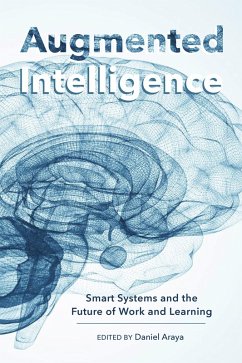Where the Agricultural Revolution harnessed domesticated animals for pastoral farming, and the Industrial Revolution leveraged machines for factory production, so today the Computational Revolution is advancing computers to augment human intelligence. Indeed, many now argue that the promise of exascale computing and the slow migration towards a computational society may represent a new threshold in human history. This "transcension" of earlier stages of tool-mediated work and learning foreshadows a momentous change in the kinds of cities we might build, the kinds of medicine we might practice, and the kinds of education we might provide. What is perhaps most surprising about the current Computational Revolution, however, is its expanding reach. The question that many now ask is "what is the trajectory of this human-machine symbiosis?" It would appear that we are on the cusp of a sea change in our capacities to augment human intelligence. But what is the future of work and learning? Will augmented intelligence help us in transforming a waning industrial society? These are the kinds of questions that we explore in Augmented Intelligence: Smart Systems and the Future of Work and Learning.
Dieser Download kann aus rechtlichen Gründen nur mit Rechnungsadresse in A, D ausgeliefert werden.
"As science fiction becomes fact, Daniel Araya's collection on augmented intelligence provides readers with an excellent survey of this evolving landscape. Technology has altered human life for centuries, but the current Computational Revolution is changing they way our species thinks-literally and figuratively-about everything. How will human and machine fusion remake our world? These essays explore this important question from fresh, sober, and inspiring perspectives." -Peter Marber, Center for Global Affairs at New York University and author of Brave New Math: Information, Globalization, and New Economic Thinking in the 21st Century


